The content of the article
Cystitis is an inflammation of the bladder mucosa that brings a ton of unpleasant symptoms. The course of the disease is complicated if the child acts as a patient. Most often, two categories of children suffer from cystitis - babies one to three years old and teenagers 12-13 years old. Young children often get cystitis because they can play on the floor, freeze, but in the heat of excitement they do not change their location, because the game is so exciting. Teenagers get sick because they want to look fashionable and stylish, while putting on short jackets in the cold, girls flaunt skirts in winter. All this leads to the development of cystitis. If you do not treat it in time, the acute phase of the disease becomes chronic. Today we’ll talk about childhood cystitis - how to recognize it, why it appears and how to deal with this disease.
How to recognize cystitis in a child
One of the main symptoms of cystitis is painful urination. It is very good if the baby is already able to express their feelings and can convey the nature of the pain to the parents. But what do mothers of infants do? How to understand that a child is crying precisely because of cystitis? The difficulty of diagnosis in this case is that babies often suffer from colic in the abdomen, their teeth erupt, the child may catch a cold. Recognizing painful urination among the symptoms is quite difficult. If a child cries out sharply and suddenly, try undressing him. If crying occurs during urination, it is most likely cystitis or other diseases associated with the kidneys and urinary system. In addition to painful urination, cystitis can manifest itself with other symptoms.
The inflammatory process in the bladder gives an increase in temperature to 38-39 degrees, depending on the degree of development of the disease.
The urine of a sick child may become cloudy, in some cases it gets dark.
Urination becomes frequent, more than 3-4 times per hour. This does not apply to infants - they have frequent emptying of the bladder is considered the norm.
In some cases, the child may have a lower abdominal pain. If the lower back hurts and the area of the back above the lower back hurts, the inflammation has affected the kidneys, possibly pyelonephritis.
Sometimes urination becomes difficult - the child feels the urge, sits on a pot or toilet, but cannot empty the bladder. Or emptying is accompanied by severe pain.
In some cases, a child may have urinary incontinence. Here it is worth considering the fact whether the baby before the illness could independently ask for a pot.
The inflammation can be so strong that pain can spread not only to the urinary canal, but also to the genitals, anus, etc.
In the later stages of the development of the disease, streaks of blood may appear in the urine.
The general condition of the child worsens - weakness appears, the baby is capricious, sleeps poorly, his appetite is lost, the child often whimpers.
As soon as you have replaced such symptoms in the baby, you need to show it to the doctor as soon as possible. The fact is that the symptoms are often similar to a common cold. Common immunostimulating drugs, heavy drinking and anti-inflammatory drugs drown out the course of cystitis, but they do not completely cure it, since the disease requires a more precise exposure. That is, the mother treats the baby from a cold, the signs of cystitis subside, but the danger is that cystitis passes from an acute form to a chronic one. It is much more difficult to treat chronic cystitis. To make the correct diagnosis, the doctor can send you for tests.As a rule, with suspected cystitis, a general and biochemical analysis of urine is performed, an ultrasound scan of the pelvic organs is performed. Bacteriological culture will help you accurately determine the type of pathogen and its sensitivity to various types of antibiotics, antifungal drugs, etc.
Girls suffer from cystitis much more often due to the fact that the female urethra is wider and shorter. Infection through this channel spreads much easier than through a narrow and long male urethra. Nevertheless, a boy can also get cystitis - this also happens. In boys, chronic cystitis occurs more often, and girls suffer from an acute manifestation of the disease. With cystitis in a boy, the doctor’s diagnosis must be clarified, because pain during urination can indicate phimosis - when the inability to fully open the glans penis leads to stagnant processes. In this case, the pain is brought by the remains of urine salts located under the foreskin. The symptomatology of the diseases is similar, although it has a completely different nature. Therefore, only a doctor should deal with the situation.
Why does cystitis occur?
The causative agents of cystitis can be bacteria, fungi, viruses and other harmful microorganisms. Here are some reasons for the development of cystitis in a child.
Most often, exacerbation of cystitis occurs against a background of hypothermia. You can’t swim in cold water, sit on concrete, dress easily in the cool season, play on a cold floor. All this leads to the beginning of the inflammatory process.
Fungi and bacteria can be activated against the background of a decrease in immunity with frequent illnesses of the child.
Unbalanced nutrition, untimely introduction of complementary foods, lack of natural vegetables and fruits in the diet can lead to the fact that the baby develops vitamin deficiency, which is also the cause of exacerbation of cystitis.
Non-observance of personal hygiene is another reason for the development of cystitis. Panties need to be changed every day, otherwise dirty linen can become a provoking factor in the development of the inflammatory process. The same applies to diapers - they should be changed every 3-4 hours, otherwise they will become a breeding ground for infections.
Various chronic diseases of the genitourinary system often lead to cystitis. Often, kidney disease and cystitis occur simultaneously.
The causative agents of cystitis can enter the urethra through the anus and genital tract. Improper hygiene often leads to cystitis in girls. If the child wipes the buttocks after defecation from the anus towards the vagina, a piece of feces can get into the urethra. In the urethra, inflammation begins, which quickly rises to the bladder.
Cystitis can occur against the background of untimely emptying of the bladder. Children often flirt, an interesting game does not allow to go to the toilet. If the baby constantly suffers, this can also trigger the development of cystitis.
Cystitis can be acute or chronic. Acute cystitis develops very quickly, proceeds rapidly, it has obvious symptoms, the acute form of the disease can be cured completely in 7-10 days. Chronic cystitis is a frequent inflammation of the bladder, which is less acute, but constant, with the slightest hypothermia. Chronic cystitis can be cured, but it takes quite a long time. Even if the treatment gave a result, and the symptoms receded, you can not stop taking the drugs, otherwise the disease will again become chronic.
Drug treatment of childhood cystitis
Before prescribing medication, the doctor must identify the nature of the disease and the type of pathogen. If these are bacteria, antibiotics will be needed, if fungi are antimycotic agents, antiviral drugs will be needed if the virus is infected. This is very important, because antibiotics will not help against the virus, but will only increase the number of fungi.Here are the main directions of drug therapy that will help you suppress the development of cystitis.
- Antibiotics. In most cases, bacteria are the causative agents of cystitis, so antibiotics are often used to fight the disease. It is better to prescribe antibiotics only after bacteriological culture, when the greatest sensitivity of bacteria to a particular drug is detected. Uncomplicated cystitis in children is usually treated with drugs such as Pefloxacin, Ofloxacin, Norfloxacin, Levofloxacin, Amoxiclav, Monural. For the treatment of young children, a suspension is used, older children can swallow tablets and capsules. An antibiotic must be taken strictly at regular intervals. Together with antibiotic therapy, probiotics and prebiotics are necessarily prescribed to support the intestinal microflora and avoid constipation and diarrhea.
- Antifungal drugs. They are prescribed for candidal cystitis. It occurs rarely, almost always in the absence of sufficient hygiene. The most effective and common antifungal agents are Diflucan, Nystatin, Fucis, etc.
- Uroseptics. This is a group of drugs that cleanse the urinary system from various microorganisms. Among them, Kanefron can be distinguished - a strong herbal preparation that improves the functioning of the kidneys and urinary system. Kanefron is safe enough even for pregnant women and small children.
- Diuretics A sufficient amount of excreted fluid from the body reduces the concentration of microbes and bacteria in the bladder. Among such funds, Veroshpiron, Diakarb, Furosemide, etc. can be distinguished.
- Anti-inflammatory and analgesic drugs. They are necessary for the acute course of the disease, when the baby cries a lot and runs to the toilet very often. You can give your child antispasmodics - HO-shpu or Papaverine to relieve spasm of the muscle layer of the bladder. Any anti-inflammatory drug based on Ibuprofen and Paracetamol will help get rid of pain and lower body temperature.
- Vitamins They are necessary to improve the immunity of the child, to restore damaged tissues of the bladder. For tissue regeneration, the intake of vitamins PP, A, C and group B.
In some acute cases, as part of a complex treatment, physiotherapeutic procedures are prescribed. This is an antiseptic and antimicrobial treatment of the bladder, which is carried out through the channel of the urethra. Remember, only a doctor can prescribe medication. Self-medication is effective only to relieve acute symptoms, it is very difficult to suppress the disease completely without drug therapy, cystitis can become chronic.
How to relieve the symptoms of cystitis in a child
As you know, the disease is quite painful, the baby is naughty and crying. Here are some tips and tricks to help you relieve your symptoms and speed up your recovery.
- Peace. The first thing the doctor prescribes for the child is bed rest. It is necessary to exclude walks or walk only with a stroller. Refuse outdoor games, at least in the first 2-3 days of illness. This is quite difficult to do, because as soon as the condition of the child improves, he begins to jump on the bed and bed, it is impossible to put him. Try to find calm games, read books, watch cartoons, collect the constructor, etc.
- Heat. Applying heat to the perineum will help relieve pain, reduce the number of urges to urinate. Pour into a glass bottle of hot water, close tightly so that the child does not get burned, wrap with a towel and tightly attach to the crotch. Doctors do not recommend applying heat to the lower abdomen, otherwise the inflammation may rise to the kidneys. At high temperatures, warming compresses should not be done. Instead of a bottle, you can apply a bag of heated salt, a heating pad, etc.General warming of the body is very useful - if possible, go to a bath with a child older than three years old.
- Baths. This is another great way to reduce pain in the urethra. You can put the child completely in the bath or prepare a healing composition in a basin and ask the baby to just sit in it with a booty. Water should be warm and comfortable, about 37-38 degrees. As a solution, you can use decoctions of herbs. In pharmacies there are special fees that are designed for various diseases. With cystitis and other diseases of the genitourinary system, it is useful to brew decoctions from plants such as flax, thyme, clover, celery, yarrow, chamomile, juniper, etc. They will quickly relieve inflammation and relieve acute pain. You can make baths 5-7 times a day, depending on the severity of the disease.
- Drink plenty. Malicious microorganisms multiply actively in the cavity of the bladder mucosa. You can reduce their number with the help of frequent urination. That is, in fact, we just wash the bacteria out of the affected organ. To do this, provide the child with a plentiful drinking regime. It is necessary to give the baby to drink what he wants - compotes, fruit drinks, milk, diluted juices, water, sweet tea. Herbal decoctions are very useful - for example, chamomile. It perfectly relieves inflammation and soothes the mucous membrane. You can drink a rosehip broth - it is not only tasty and healthy, but also has a diuretic effect. It is effective to give the child alkaline mineral water - it has a slight anti-inflammatory effect. The main thing is that the baby drinks at least one and a half liters of water per day. Then recovery will come much faster.
- Diet. Salt and various spices penetrate with the urine to the bladder, irritating the mucous membrane of its walls. Therefore, it is still worth giving up spicy and salty foods in order to reduce pain. In addition, you need to provide your child with a balanced and varied diet, which will help get rid of vitamin deficiency and improve immunity. In the diet of the baby every day should be dairy products, vegetables, fruits, meat, cereals, greens. In the fight against cystitis, it is useful to eat fermented milk products - kefir, fermented baked milk, yogurt.
- Hygiene. Since a huge amount of bacteria is excreted along with the urine of the child, you need to change clothes and diapers more often, wash yourself every 6-7 hours and after each bowel movement. Teach the girl to use toilet paper correctly - wipe the ass from the vagina towards the anus.
Cystitis is quite common, its treatment does not present any particular problems. But if you do not pay attention to the disease in time, cystitis can turn into serious complications. Among them, pyelonephritis, vesicoureteral reflux, urinary incontinence, genital infections, up to infertility in girls. Consult a doctor in time - a urologist or nephrologist is involved in cystitis.
Video: cystitis in children

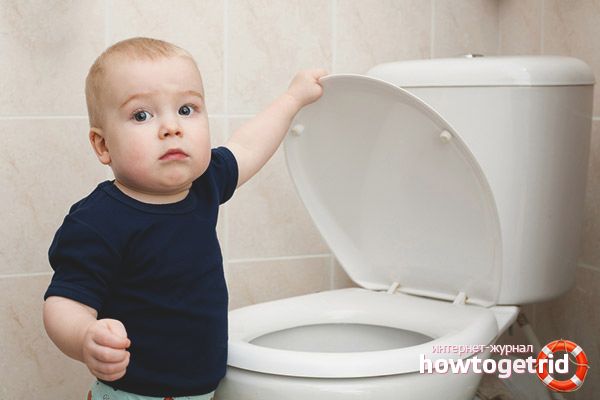
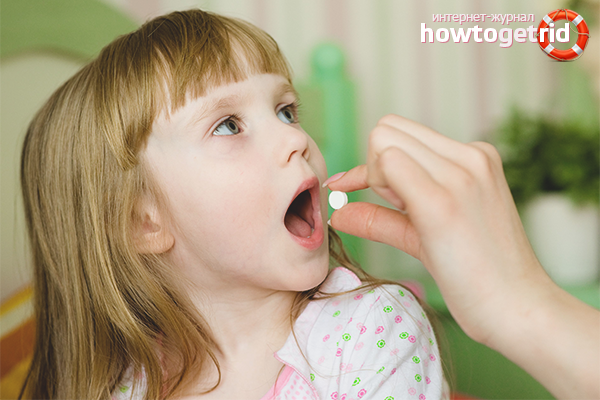
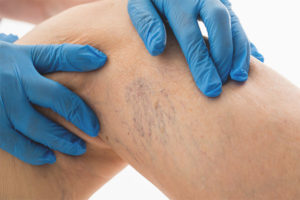
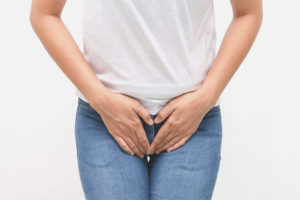
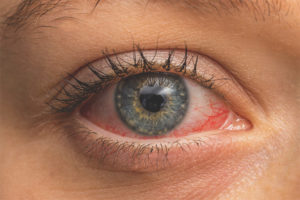

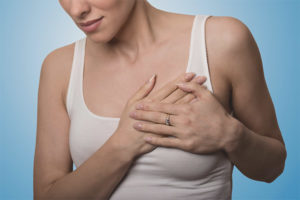
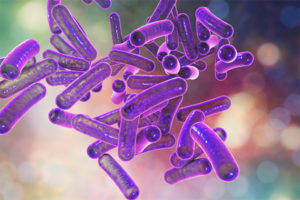
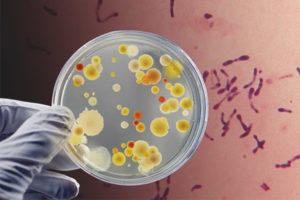
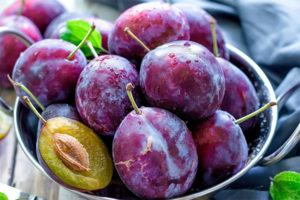
Submit